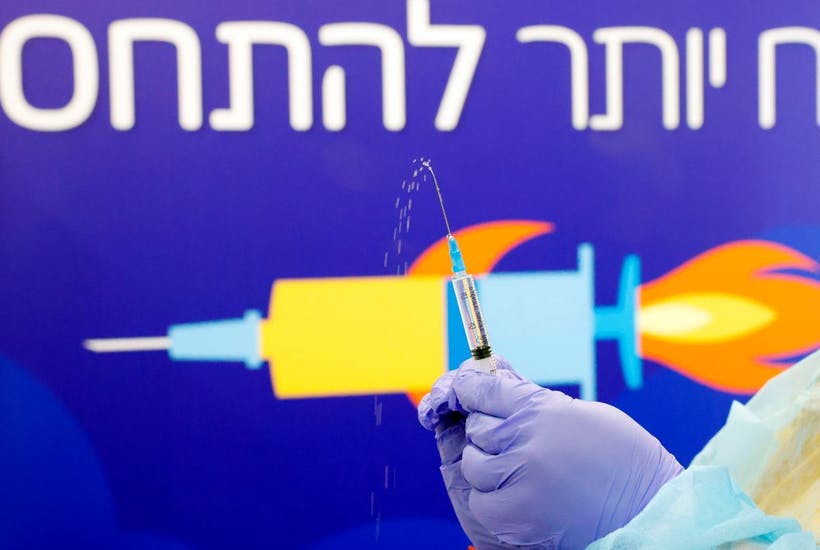On a cold night three days before the end of the 2020 I drove down to Jerusalem’s Pais Arena. The area is usually a sports venue, next to Jerusalem’s stadium and mall, but in December it was transformed into a centre for mass vaccinations, open from morning till ten in the evening. By the first day of 2021 Israel had vaccinated more than 1 million people in two weeks, an unprecedented number, making the country a global leader in vaccinating against Covid-19. I was one of those who received the first jab of the Pfizer vaccine.
Israel’s path to this milestone has been a rollercoaster of lockdowns and struggles over the last year. Back in February 2020 the country was on alert for the spread of the coronavirus. Italy had put a dozen towns into lockdown on February 22 and Israel was planning for a worst-case scenario. Many Israelis felt the government at the time was being alarmist when it warned about a group of South Korean tourists who had tested positive, and imposed travel restrictions on several Asian countries. It turned out Jerusalem was right.
Israel scrambled in March to acquire personal protective equipment, even sending the Mossad spy agency to acquire 10 million items to make sure medical professionals and average people had access to the face coverings. I remember searching for masks at the time when they had all been stripped from the shelves. By March 27 Israel had also mobilized its army to help enforce a strict lockdown, with soldiers helping the police with checkpoints, delivering food and helping the needy.
Read the article by Seth J. Frantzman in The Spectator.

